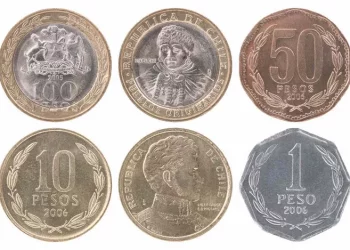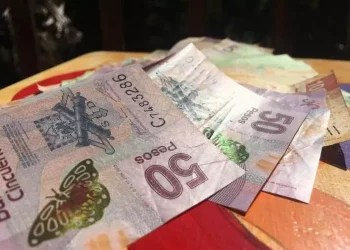Understanding how much 50,000 yen is worth in USD involves several considerations beyond a simple conversion calculation. In this article, we will delve into the current exchange rate, factors influencing exchange rates, and forecast trends. Additionally, we will explore financial advice, legal and tax implications, economic indicators, and the global market impact. By the end, you will have a comprehensive understanding of currency conversion between Japanese yen (JPY) and US dollars (USD).
Current Exchange Rate
To determine how much 50,000 yen is in US dollars, we must first consider the current exchange rate. As of today, let’s assume the exchange rate is 1 USD = 156.24 JPY. This means that 1 Japanese yen is worth approximately 0.0064 USD. To find the value of 50,000 yen in USD, we simply multiply the amount of yen by the exchange rate.
50,000 JPY×0.0064 USD/JPY=320.02 USD
Therefore, 50,000 yen is equivalent to 320.02 US dollars at this exchange rate. It’s important to note that exchange rates fluctuate frequently due to various economic factors, and the rate you get might be different depending on the time and place of your conversion.
Conversion Calculation
While the straightforward multiplication method works for understanding the approximate value, real-world currency conversion might involve additional fees and varying rates depending on the service provider. Banks, currency exchange services, and online platforms each might offer different rates. Here is a detailed look at the conversion calculation process:
Exchange Rate Consideration: Always check the live exchange rate before making any conversion.
Service Fees: Different services might charge a fee for currency conversion. These fees can be a fixed amount or a percentage of the transaction.
Mid-Market Rate: This is the average rate between the buy and sell prices of two currencies and is often used as a benchmark.
Conversion Tools: Online tools like OANDA, or bank-specific calculators can provide real-time conversion rates and fee structures.
For example, if a bank charges a 1% fee on currency conversion, the calculation for converting 50,000 yen would be:
Net amount in USD=50,000 JPY×0.0064 USD/JPY×(1−0.01)Net amount in USD
Net amount in USD=50,000×0.0064×0.99≈316.8 USD
This fee-adjusted calculation gives a more accurate picture of the actual amount received after conversion.
Factors Influencing Exchange Rates
Exchange rates are influenced by multiple factors that can cause them to rise or fall. Understanding these factors is crucial for anyone involved in currency conversion, whether for travel, business, or investment purposes.
Interest Rates: Central banks set interest rates, which can attract foreign capital. Higher interest rates offer lenders in an economy a higher return relative to other countries, increasing the currency’s value.
Inflation Rates: Lower inflation typically results in a rising currency value because its purchasing power increases relative to other currencies.
Political Stability and Economic Performance: Countries with less risk for political turmoil are more attractive to foreign investors, driving up the currency value.
Public Debt: Countries with large public deficits are less attractive to foreign investors due to the risk of inflation and default.
Terms of Trade: If a country’s export prices rise at a higher rate than its import prices, its terms of trade have improved, which can increase currency value.
Speculation: If investors believe a currency will strengthen in the future, they will buy more of that currency now, increasing its value.
See Also:What Is 2000 Yen to USD?
Forecast and Trends
Exchange rates are notoriously difficult to predict due to the multitude of influencing factors. However, analysts use various models and indicators to forecast trends. Let’s consider some possible scenarios for the JPY/USD exchange rate:
Economic Policies: Japan’s monetary policies, including negative interest rates and quantitative easing, aim to stimulate economic growth but can lead to a weaker yen.
US Economic Performance: Strong economic performance and rising interest rates in the US can lead to a stronger dollar.
Geopolitical Events: Events such as trade agreements, tariffs, and geopolitical tensions can cause sudden shifts in exchange rates.
Market Sentiment: Investor sentiment and risk appetite play crucial roles. In times of global uncertainty, the yen often strengthens due to its status as a safe-haven currency.
Given these factors, some experts predict a stable or slightly stronger yen against the dollar if Japan’s economy improves and the US faces economic challenges. Conversely, a robust US economic recovery might strengthen the dollar.
Financial Advice
When dealing with currency conversion, especially significant amounts like 50,000 yen, it’s wise to follow some financial advice:
Monitor Exchange Rates: Keep an eye on the rates and try to convert your money when the rate is favorable.
Use Trusted Services: Choose reputable banks or online services for your conversions to avoid high fees and unfavorable rates.
Consider Forward Contracts: If you anticipate a future need for currency conversion, locking in a rate now can protect against future volatility.
Diversify Currency Holdings: If you regularly need multiple currencies, consider holding diversified currency accounts.
Hedging: For businesses, using financial instruments to hedge against currency risk can protect profits.
Legal and Tax Implications
Currency conversions can have legal and tax implications, especially for large amounts or business transactions:
Reporting Requirements: In some countries, large currency conversions must be reported to tax authorities.
See Also:What is 25,000 Yen to USD?
Capital Gains Tax: If you profit from currency conversion (e.g., buying low and selling high), you might be subject to capital gains tax.
Transfer Regulations: Be aware of any regulations on transferring large sums of money internationally to avoid legal issues.
Accounting Standards: Businesses need to adhere to international accounting standards when reporting foreign currency transactions.
Consulting with a financial advisor or tax professional can help you navigate these complexities.
Economic Indicators
Several economic indicators can help predict exchange rate movements and understand the broader economic context:
Gross Domestic Product (GDP): Higher GDP growth can lead to a stronger currency.
Unemployment Rates: Lower unemployment can indicate a strong economy, positively affecting the currency.
Consumer Price Index (CPI): Measures inflation, which can influence currency value.
Trade Balance: A surplus in the trade balance can strengthen the currency, while a deficit can weaken it.
Foreign Exchange Reserves: Large reserves can help stabilize a currency.
By monitoring these indicators, investors and businesses can make more informed decisions regarding currency conversion.
Global Market Impact
Exchange rates have a significant impact on the global market, influencing trade, investment, and economic stability:
Trade Competitiveness: A weaker currency can make a country’s exports cheaper and more competitive, boosting the economy.
Investment Flows: Exchange rates affect foreign direct investment (FDI) and portfolio investment as investors seek favorable conditions.
Tourism: Favorable exchange rates can boost tourism by making a destination cheaper for foreign visitors.
Global Supply Chains: Currency fluctuations can affect the cost of raw materials and production, impacting global supply chains.
Understanding these impacts helps businesses and investors navigate the complexities of the global market.
Conclusion
Converting 50,000 yen to USD involves more than a simple calculation. By considering the current exchange rate, understanding the factors influencing these rates, and staying informed about economic indicators and market trends, you can make more informed financial decisions. Additionally, being aware of the legal and tax implications ensures compliance with regulations, while understanding the global market impact helps businesses strategize effectively. With careful monitoring and strategic planning, you can navigate the complexities of currency conversion successfully.
Related Topics:




























